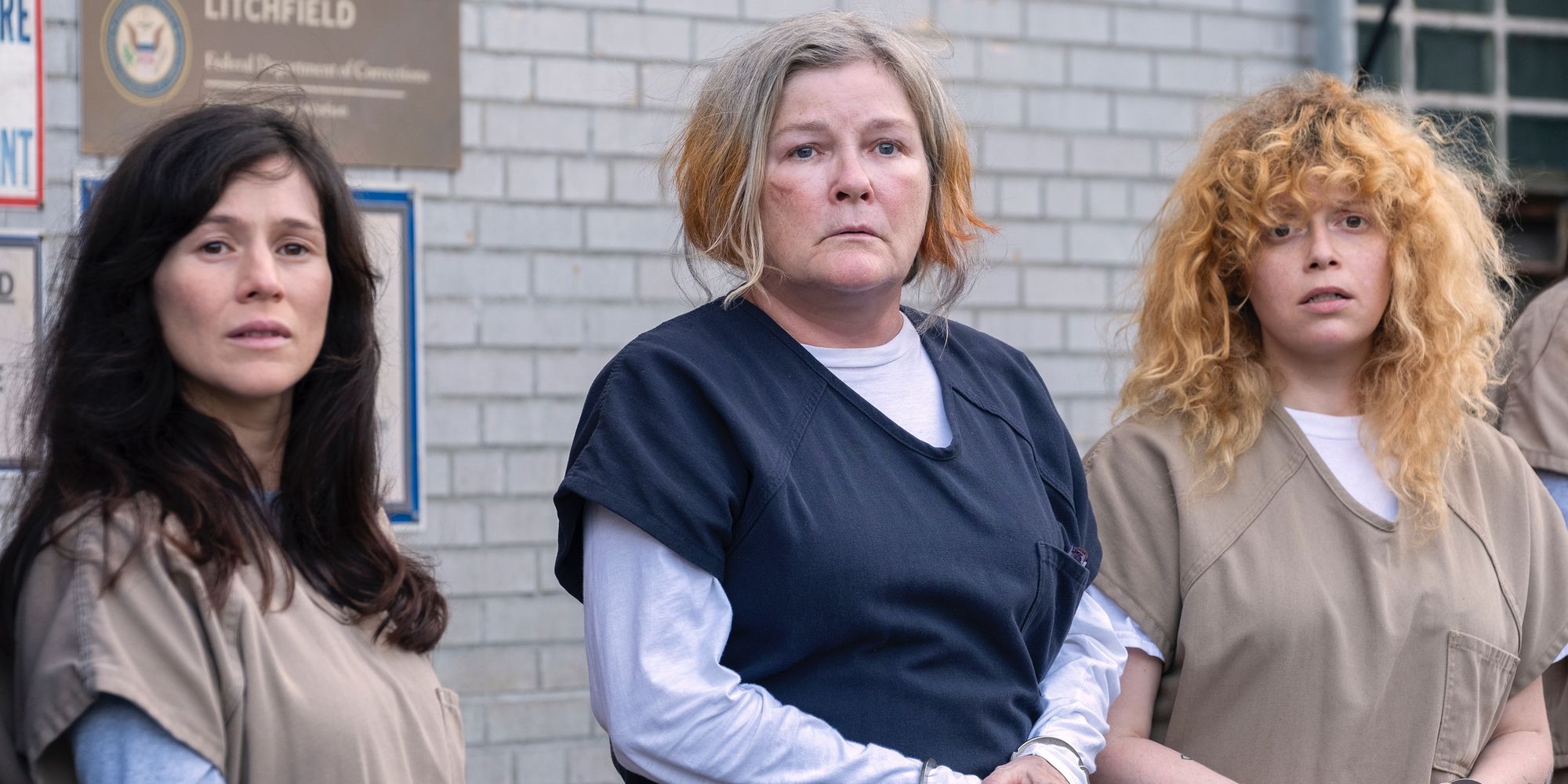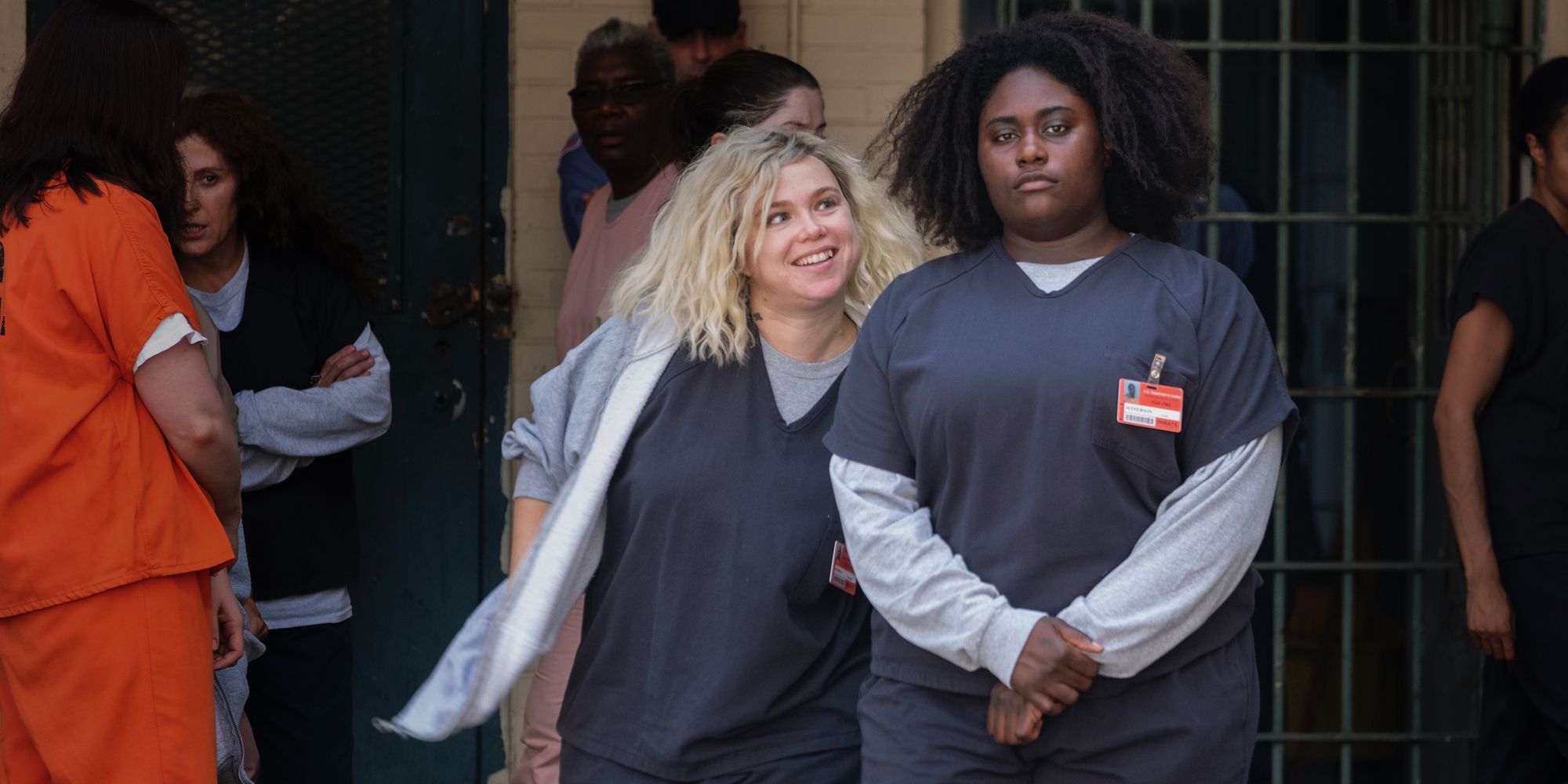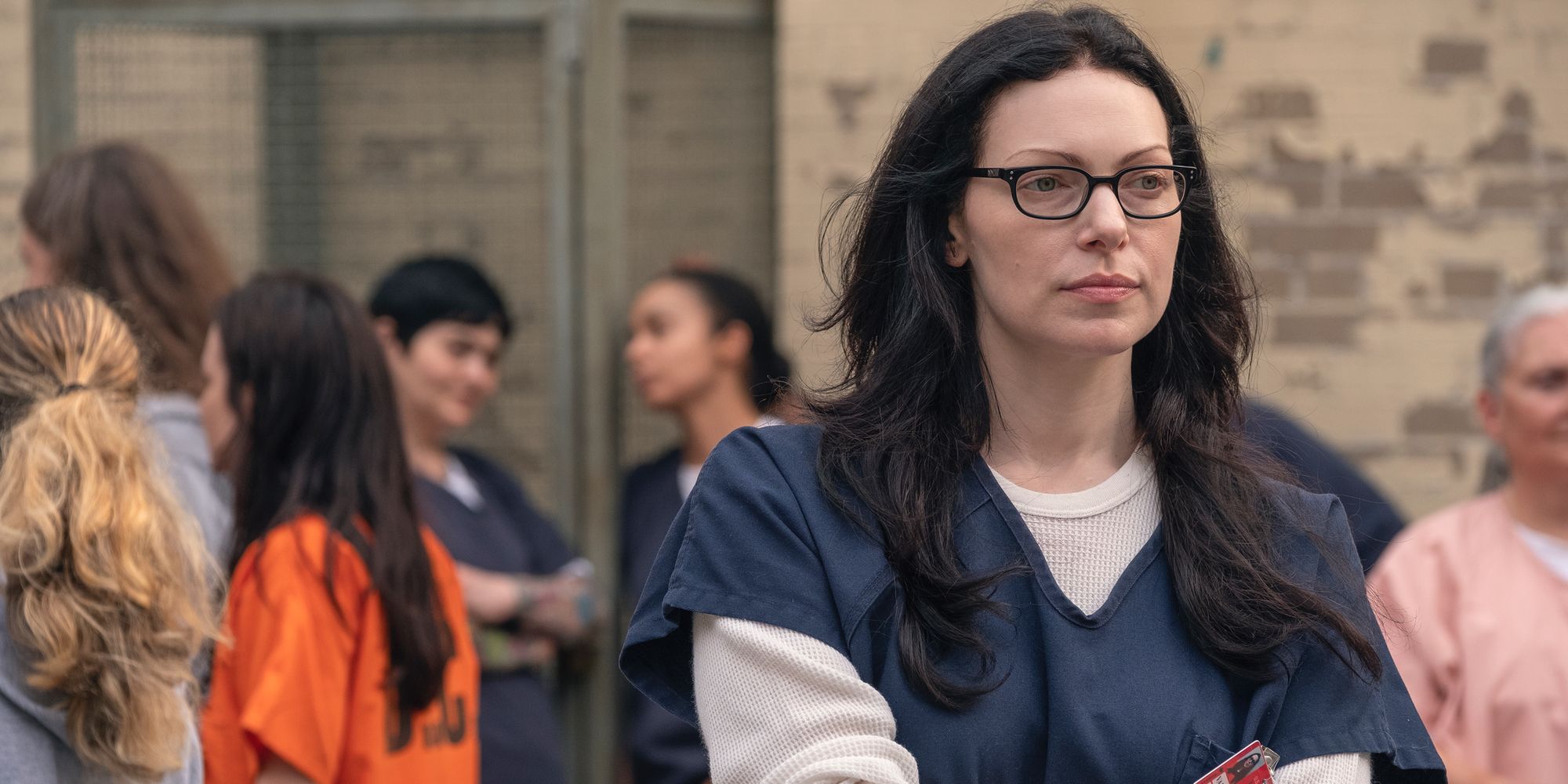It’s not difficult to pinpoint exactly what Orange is the New Black means to Netflix. The series, from creator Jenji Kohan and inspired by on the book of the same name by Piper Kerman, legitimized the streamer’s push into the world of original programming, namely by racking up a number of Emmy and Golden Globe wins (in particular, Uzo Aduba for her role as Suzanne) and helping popularize the term binge-watching, thanks to Netflix’s all-at-once method for delivering a new season. The show influenced the streaming giant in other ways, too, first with its very long opening credits sequence — featuring the Regina Spektor song ‘You’ve Got Time’ — which more or less willed the Skip Intro button into existence. But most of all, Orange is the New Black set a high-water mark for the company in terms of the quality of its original content. A mark that has rarely been surpassed, especially by the show’s own later seasons.
As such, the end of Orange is the New Black is also the end of an era on Netflix. While that mantle may have once been thought to belong to House of Cards (it’s best to forget Lilyhammer ever happened), the scandal surrounding ousted star Kevin Spacey and the disappointing final season that came about as a result unofficially passed the baton to Kohan’s socially conscious prison dramedy. And that’s just as well. While Netflix is forever courting the kind of highly polished, prestige-chasing TV drama that House of Cards initially was, it seems unlikely that the service will have a show quite like Orange is the New Black on its ever-growing slate of originals in the near future.
Sure, Netflix has On My Block and Dear White People, and it also has the Kohan-produced comedy GLOW, but there’s just something in the Orange is the New Black water that made it such a unique entry point for Netflix subscribers and a seismic shift for original content on TV at the start of the streaming era. That may well end up being the show’s legacy, which isn’t too shabby considering it ran for three seasons too many, and that its main character, Piper Chapman, overstayed her welcome for most of the series, despite Taylor Schilling putting in a solid performance during the seven seasons it was on.
The sense that the series may have outstripped its narrative purpose is plainly evident in the final season, which finds Piper out on early release, while series mainstays Taystee (Danielle Brooks), Pennsatucky (Taryn Manning), Red (Kate Mulgrew), Daya (Dascha Polanco), Nicky (Natasha Lyonne), and more mingle with much newer characters introduced in the last season or so, as Litchfield penitentiary was swallowed up by the insidious prison-for-profit industry. While some of the new faces have added intrigue and conflict to the narrative, few of them supplied the Orange is the New Black with the kind of quirky, memorable characters that filled its cells when the series began.
The same is true of the ever-evolving roster of corrupt, abusive guards tormenting the inmates, putting them in solitary, or, in the case of one of season 7’s plotlines, forcing them to sell drugs to line their pockets. Although the series once again examines the ways in which inmates are subjected to dehumanizing treatment and inhumane conditions, many of the situations feel like well-trod territory for the show, and while it may serve as a wakeup call for those watching, it doesn’t feel as though Orange is the New Black has anything particularly new to say on the matter beyond reiterating the obvious. So, while Alex (Laura Prepon) is blackmailed into helping facilitate the distribution of heroin in the prison, the storyline isn’t exactly venturing into uncharted territory.
Oddly enough this works in the show’s favor, as the final season of Orange is the New Black funnels its various energies back into a deeper exploration of its remaining characters, becoming more a celebration of the tremendous work that was done to make these inmates so striking and vivid in the first place. As such, while season 7 has its narrative loose ends to tie up, they are, by and large, secondary to the uncomplicated pleasure of affording the audience just a little more time with the expansive cast before the show becomes another piece of Netflix’s enormous library of content.
The best of what the show has to offer comes in the latter half of the (probably overlong) 13-episode season, as the series begins the work of concluding this story without offering a pat ending or otherwise rote sense of catharsis to the conclusion. Fittingly, there is a greater sense that things will remain the same for the inmates, as the tedium of their sentences — both deserved and undeserved — drags on and on, long after the credits on the final episode have stopped scrolling. Yet, through it all, and despite eschewing a typical kind of happy ending, Orange is the New Black manages to bring to many of its characters and those watching a kind of emotional release that largely fulfills seven seasons of storytelling, and once again proves how Jenji Kohan’s series was a true game changer for Netflix and TV.
Orange is the New Black season 7 will stream exclusively on Netflix beginning Friday, July 26.



